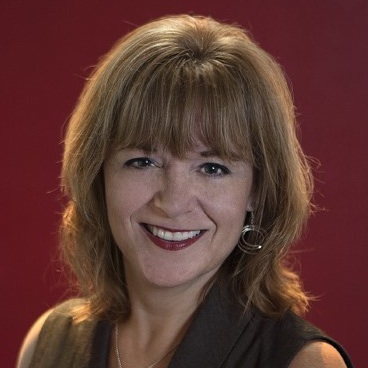 With the well-warranted national conversation on good health, it’s time we talk about another area where health is important – our own conversations.
With the well-warranted national conversation on good health, it’s time we talk about another area where health is important – our own conversations.
-
We’ve got obesity on the national scale and bloated conversations in the workplace.
-
We’ve got fillers in our food and fillers in our conversations.
-
We seek workarounds to what we know contributes to good health (exercise, anyone?) like we seek shortcuts when we converse and omit details required for accomplishing good work.
-
We avoid what might not taste good but could be good for us like we avoid tough conversations that might not feel good but are good for us.
How can we have healthier conversations? Here are six tips to consider.
1. Do you believe people are in the cars on the way to or from work right now plotting your conversational demise? They are waiting for you to say the wrong thing so they can jump down your throat, correct you in front of others or make fun of your word choice? I gather there may indeed be people who choose those behaviors, but they are just one part of a diverse population. I call them “mean” and if you listen to Taylor Swift, I‘d say she agrees! Let’s not give them our power. They are a possibility, not a probability. Let’s start with the premise that people do genuinely want to connect. People are not trying to be difficult, they are trying to understand.
2. Get centered and be on point. Dr. Stephen Covey’s timeless wisdom in habit two belongs here. Begin with the end in mind™. What’s the purpose of our conversation? What are we opening our mouths for? Is it to seek validation? To offer a different opinion? To make a point? If it has no point, perhaps we should warn people what we are processing out loud! Then they can decide if they want to stick around and hear our brains work it out. Remove those filler statements, too. “Umm, you know what I mean.” They stop us from having efficient conversations.
3. Commit to learn from whomever we are conversing with. That’s right. Listen for the lesson. That means we respect and value differences because that gives conversation meaning. It also means they even if we have spoken to this person countless times in the past, we look for what’s different and not ASSUME we know what they will say. Arrogant of us to believe, even if we have seen patterns in the past, that we know what they will say next. Thinking we know what people are going to say is just one block to better listening. We rehearse, daydream, judge, derail, compare, advise, fix, one-up, interrupt and debate, too!
4. Give an appropriate level of detail that the receiver requires. Contrary to popular belief, it’s not what you want to say. It’s what they need to hear or get from your words. This shows up in delegation that has gone sideways. Let’s ask “What else do you need to know for this to be successful?” Be cognizant of generational differences with delegation. Boomers want to give more direction while Gen X wants to hear less and do things on their own. Gen X wants to give less feedback when delegating to Gen Y who wants to hear how well they are doing a lot more than Gen X is interested in offering it.
5. Try to really understand where “difficult” folks are coming from. One of my colleagues, Dr. Larry Bienati, has done extensive research in employee rehabilitation, trying to determine how to work with what other people perceive to be “problem” employees. His research shows that those perceived to be the most difficult are those that are bitterly disappointed. Something has not gone as expected, maybe recently or maybe a long time ago. Have empathy for the disenchanted and see if you can connect on a point important to them before you write them off.
6. Don’t avoid the tough conversations. They are only avoidable if you want your elephants to grow and snuff the lifeblood out of your organization. Tough conversations are required to move forward. Formulas do exist for elephant calling conversations. People need to be ready and have articulated the issues which need to be addressed very well before they are put forth. If we cannot agree on how to move forward, then we agree to disagree -- as long as we commit to continuing to seek an answer together.
Do you want dispirited, energetically weary conversations or healthy conversations? It takes effort for the latter. In our time-compressed world, it may seem like a luxury to be purposeful, clear, listen well, honor the participants and take on the tough stuff. However, connecting with others is the lifeblood of getting work done. If we do not practice and commit to having healthy conversations, we contribute to miscommunication sickness that permeates our organizations. These skills pay off in less stress, more connection and better performance. Those benefits seem well worth the investment.
How are you going to have healthier conversations today?
 Written by Sherri Petro, President of VPI Strategies & California Miramar University (CMU) Professor Sherri is a professor, accomplished strategist, organizational development professional and executive coach. She consulted for 13 years in the for-profit, non-profit, and government sectors after a 16 year corporate career. She teaches the Strategy Capstone as well as Leadership, Change Management and Business Ethics courses in CMU’s MBA program. Her current passion is educating organizations on how to increase organizational sustainability by leveraging the talents and skills of all in multi-generational workplaces. Sherri offers remedies to misunderstandings that result from different belief structures and lack of coherent communication by creating understanding and making connections at the belief level not only at the behavioral level.
Written by Sherri Petro, President of VPI Strategies & California Miramar University (CMU) Professor Sherri is a professor, accomplished strategist, organizational development professional and executive coach. She consulted for 13 years in the for-profit, non-profit, and government sectors after a 16 year corporate career. She teaches the Strategy Capstone as well as Leadership, Change Management and Business Ethics courses in CMU’s MBA program. Her current passion is educating organizations on how to increase organizational sustainability by leveraging the talents and skills of all in multi-generational workplaces. Sherri offers remedies to misunderstandings that result from different belief structures and lack of coherent communication by creating understanding and making connections at the belief level not only at the behavioral level.
Do you have a question for Sherri? Please visit our Workplace Communication Skills Community, she will be happy to help: Ask an Expert
About ManagingAmericans.com
We are America’s Management & Leadership Center for Professional Development. Our well-rounded business content is designed for Leaders & Managers to implement change with ease & improve accountability amongst their teams. Here you’ll find Articles from 30+ Expert Consultants, Coaches & Thought Leaders, access practical Business Templates, learn new skills & connect to our Expert Panel to answer your organizational challenges.